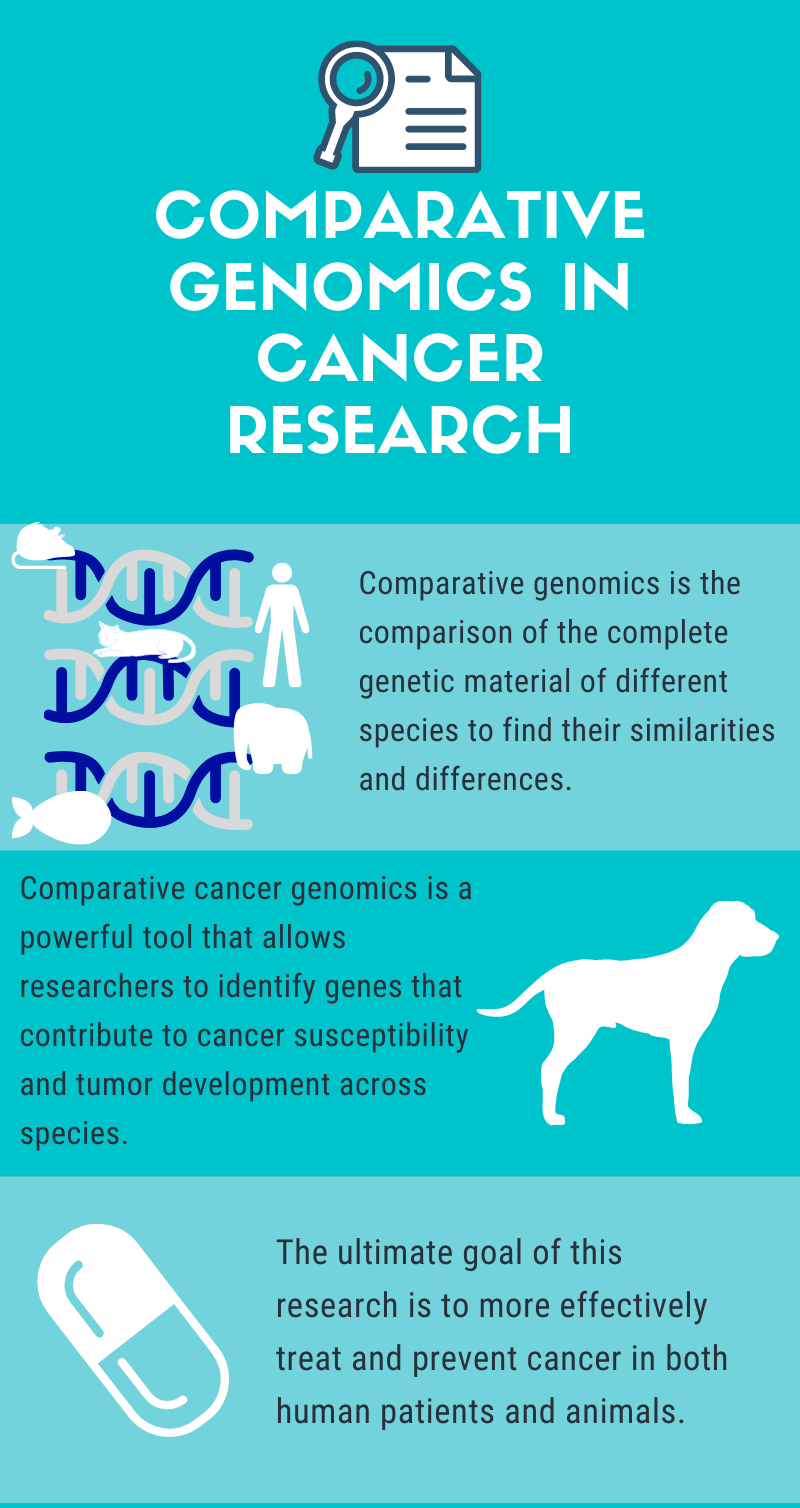Comparative Genomics
A genome refers to the complete set of genetic information necessary for creating and maintaining life. Every organism stores this genetic information in molecules of DNA called chromosomes. Simply put, the genome is the total of all of an organism’s genes. Comparative genomics is a quickly expanding area of biology where researchers compare the genomes of different organisms, for example, between humans and dogs. In this case, researchers may compare the exact sequences of the four chemical building blocks (adenine, cytosine, guanine, and thymine) that make up each DNA molecule in humans versus dogs, in order to pinpoint regions of similarity and difference between species.
What is comparative genomics used for?
Comparing the genome sequences of different organisms helps researchers to identify and better understand the genes that are unique to a specific species versus those that are conserved in many different species over millions of years. Genes that are conserved come from a common ancestor and are shared across related species, suggesting the importance of these genes to the functioning of those species. Studies in comparative genomics have shown that humans share a core set of conserved genes with closely related species — for example, approximately 99% with chimpanzees — but share a large percentage of genetic overlap even with species that are commonly thought of as distantly related; for example, 60% with fruit flies, 84% with dogs, and 90% with mice. These comparisons can not only reveal which genes are essential to the functioning of biological systems across many species, but can be used as a valuable tool for uncovering how organisms have evolved over time.
How is comparative genomics used to study cancer?
Although early research efforts at sequencing genes was extremely costly and painstaking, genome sequencing technology has become less expensive, less labor intensive, and more powerful. Comparative genomics now has applications in a variety of fields, including oncology and cancer research. The interdisciplinary collaboration of researchers from the fields of comparative genomics and oncology (called comparative cancer genomics or comparative oncology) allows examination of inherited cancer risk and tumor development across species, with the ultimate goal of advancing cancer care of both human patients and animals.
This collaboration is particularly evident in studies comparing tumors in dogs and human patients. Cancer is one of the most common causes of death in adult dogs. Naturally occurring cancers in dogs closely parallel the progression of human cancer and offer a good model to study the detection and treatment of cancer in human patients. For example, comparative cancer genomics research has revealed close similarities in the mutational landscape (the large collection of changes in the DNA that occurs in a tumor) in humans with angiosarcoma and in dogs with a similar cancer called hemangiosarcoma, which is relatively common in animals, particularly in golden retrievers. Angiosarcoma is a rare and highly aggressive cancer with few effective treatment options. Because it is so rare, it is difficult to study. The similarities in the two cancers revealed by comparative genomics research suggest that canine hemangiosarcoma may be a powerful tool for investigating the pathogenesis of human angiosarcoma. Furthermore, clinical trials that evaluate therapeutic approaches in dogs with hemangiosarcoma might also shed light on treatment of the cancer in humans.

How are UMass Cancer Center researchers using comparative genomics to advance the study of cancer?
The UMass Cancer Center has several strong research programs that use comparative genomics to improve diagnosis of cancer and detection of relapse and to explore new therapeutic targets in cancer. Learn more below about the UMass Cancer Center researchers who are doing this work.
-
 Aug 6, 2021Read more
Aug 6, 2021Read more